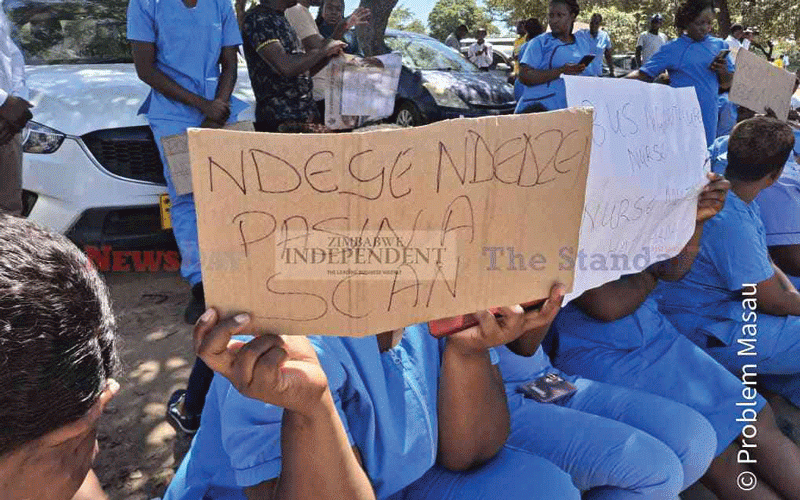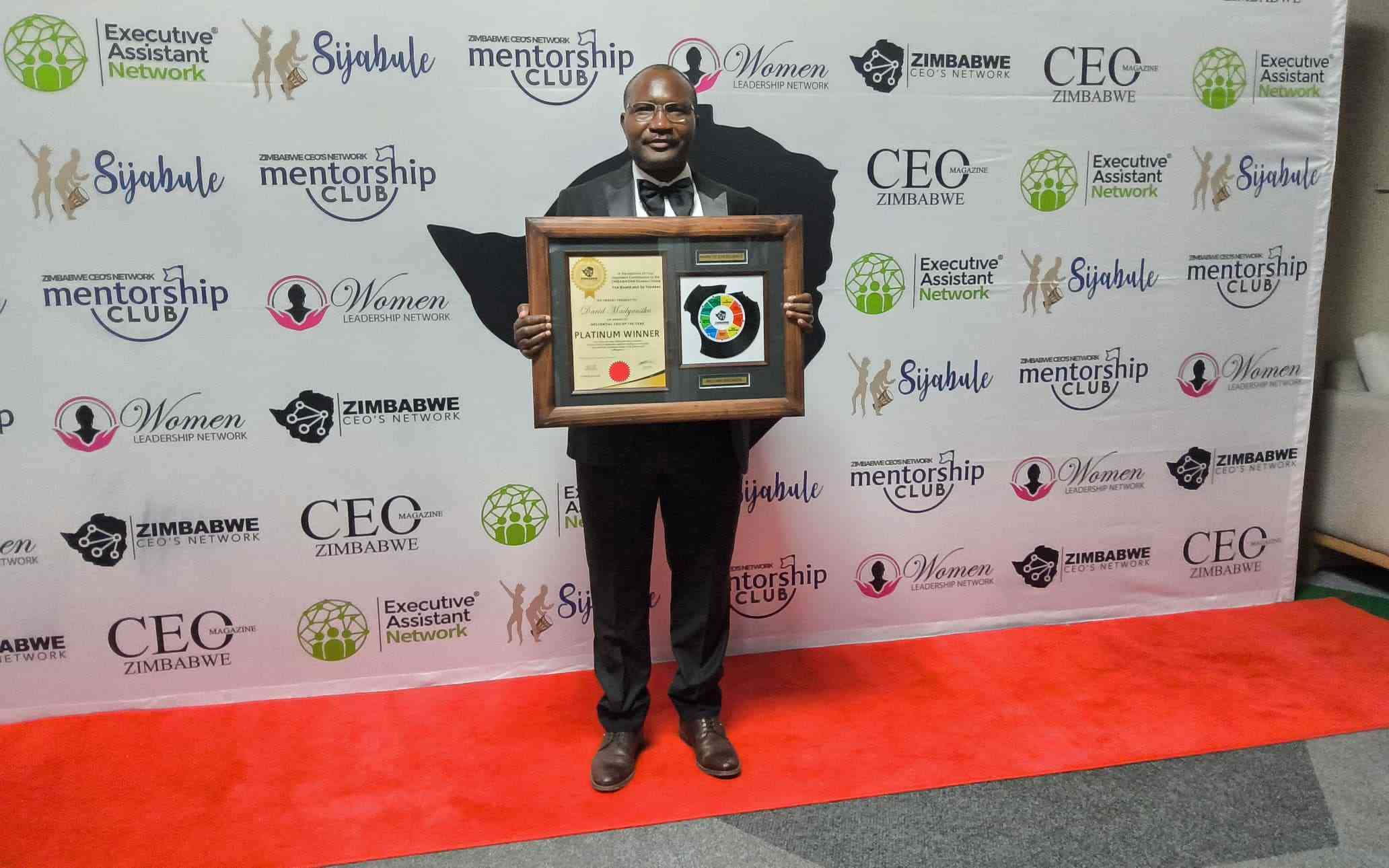FOR years, villagers including the elderly and children endured long distances to get safe water in Muzarabani district located in Mashonaland Central province.
After walking long distances, the villagers had to queue to draw the precious liquid.
Just like villagers, livestock would also be queuing for a chance to drink water. The sharing of the water source became a daily routine.
The desires, hopes, dreams and aspirations of some of the Muzarabani villagers to have improved access to clean water were answered recently through the commissioning of the solar-powered water schemes.
The commissioning of Gutsa Solar Piped Water Scheme (SPWS) in Butau Village (Ward 6) and Katsande Solar Piped Water Scheme in Katsande Village Ward 2, Muzarabani North district, has been described as a life changing development for the community.
The villagers are now accessing water for drinking from the improved community asset.
The Katsande solar powered water scheme supplies 145 households to the water. The solarised borehole has a total depth of 47m and a capacity of 1,21 litres/s and a transmissional pumping system.
The scheme’s main components include four solar modules, 1.8kW Lorentz pump, three 5000 litre tanks and three community water points with three tapes each.
The SPWS is equipped with a security guardroom and palisade fencing.
The scheme is managed by a trained Water Point User Committee. There are two operators, security guards and a legally binding constitution.
On the other hand, the Gutsa solar powered water scheme under Chief Hwata services 103 households. The solarised borehole has a total depth of 25,3m and a capacity of 0,8L/s and a transmissional pumping system. It is managed by a well-trained Water Point User Committee.
The scheme is characterised by main components that comprise of three solar modules (550Wp), 1,8kW Lorentz pump, three 5000 litre tanks and two community water points with three tapes each.
This has been made possible through the villagers own hard work, in partnership with Adventist Development Relief Agency (ADRA) Zimbabwe through its Enhancing Recovery and Resilience in Communities (ERRIC) Project 2 that received funding from the United States Agency for International Development with facilitation from the government.
ADRA is an agency established by the Seventh-day Adventist Church for the specific purposes of community development and disaster relief. Its network has a presence in over 130 countries worldwide and in Zimbabwe, ADRA is operating in six provinces.
The water schemes under ADRA’s ERRIC Project 2 have brought smiles and a sigh of relief to the villagers in the Muzarabani district giving them a good standing as a community.
A 71-year-old- Erina Kavhukatema of Kanyera Village under Chief Kasekete said the water situation has been impacting negatively on their well-being.
“My legs can no longer carry me for long distances. I used to walk for a long distance carrying my five-litre container because that is all I could manage. We are happy that we now have running tap water closer to our doorsteps,” she said.
The point was also reinforced by a 62-year-old Beauty Kapfudzaruwa of Kapuya Village of Ward 2 in Maunga Unga who said: “Before the coming of ADRA to intervene on our situation we have been walking long distances with a 20-liter bucket on our heads and this left us physically exhausted.”
“This has also had more impact on the girl child, especially those of school going age living with their grandparents as she had to do a lot of fetching before even going to school, but now the grandparents can afford to carry a small container and get the water from the tapes with much labour as before.”
Yuna Tinago of Kadzuramera Village said: “We are happy that we now have water closer to our homesteads and this has come as a relief especially for us girls as we used to walk longer distances to fetch water from a nearby borehole.”
“We have been crowding at this borehole and sometimes people would end up fighting. We are happy that this is going to be a thing of the past as we are not going to be spending more time fetching for water.”
Kadzuramera Village head Gift Kavhukatema said the bringing of clean water closer to villagers’ homesteads was a welcome development.
“Having a clean water source right in the village is a great development for us and a relief to our daughters who before going to school used to fetch water from a distant source,” he noted.
The chairperson of Katsande Water Point Committee which oversees the management of water facilities in the village, Mary Zandiya, said the development will also improve hygiene.
“Water is a precious natural resource that must be easily accessed. This piped water scheme will have a positive bearing on hygiene issues,” she noted.
“The scheme will also have a positive impact on reducing time spent at the borehole while fetching water and limited labour requirement on water abstraction.”
Dembere Village Ward 6 councillor Mather Machingura applauded ADRA’s gesture for introducing the water schemes in her jurisdiction.
“We need more water sources in our villages and there is also no water in schools. Our elderly and those living with disabilities are now able to get water close by unlike before where they struggled to fetch water,” she said.
In a sign of its commitment to sustaining the scheme, in Katsande village, the villagers have agreed to a monthly levy of US$1 per household towards maintaining the solar system and the water pump.
Chief Hwata said he would make sure there will be no vandalism of the solar panels as well as the water tapes by the villagers.
“We want to assure you ADRA and your partners that the property is in safe hands. The villagers here love and safeguard their properties.”
Speaking at the commissioning and handing over of the two water schemes projects last week, ADRA Zimbabwe country director Judith Musvosvi said her organisation wants to improve access to clean water in rural communities.
“As we work with communities, our approach is to act as a catalyst for change by inspiring, engaging and empowering people to strive together for the greater good. In doing so, ADRA embodies values that are grounded in human dignity and respect for people’s innate capabilities,” she noted.
Musvosvi applauded the administration of Muzarabani and its government structures for having an enabling environment for development work to take place in the district.
She said ADRA has made sure that its interventions are aligned with the Zimbabwe’s priority actions particularly the Zimbabwe’s 2020 Humanitarian Response Plan priority action around agricultural interventions to enhance household’s food basket and their productive livestock assets (Purpose 1) and increasing essential hygiene actions and the rehabilitation of key water points particularly to remove the burden on women and children (Purpose 2).
“Through the ERRIC 2 project ADRA has managed to support 3 000 households with a US$48 voucher per household to purchase drought tolerant seed (sorghum, cowpeas and lablab/velvet bean) from ADRA facilitated Seed Fairs,” she said adding that in total US$144 000 was committed to the purchase of planting seed.
“Through the project, we have also facilitated training on Climate Smart Agriculture practices, Total Livestock Management, Disaster and Risk Reduction and Post-Harvest Management for 3 000 households.”
Her organisation has also facilitated the formation of 100 village savings and loan associations and upgraded five boreholes into solar powered water schemes valued at a total of US$129 847.
“The upgrade of five boreholes into solar powered water schemes are in Gutsa village (US$26 632), Katsande village (US$25 926), Chadereka village (US$24 025), Mufunga village (US$26 632) and Kamudyariwa village (US$26 632).
“We have also supported the revival of ward-based Child Protection Committees and training of ward-based community case care workers and gender champions for management of Protection issues and gender based violence within the communities. These same activities are also being conducted in Mbire district for the same number of wards and targets.”





